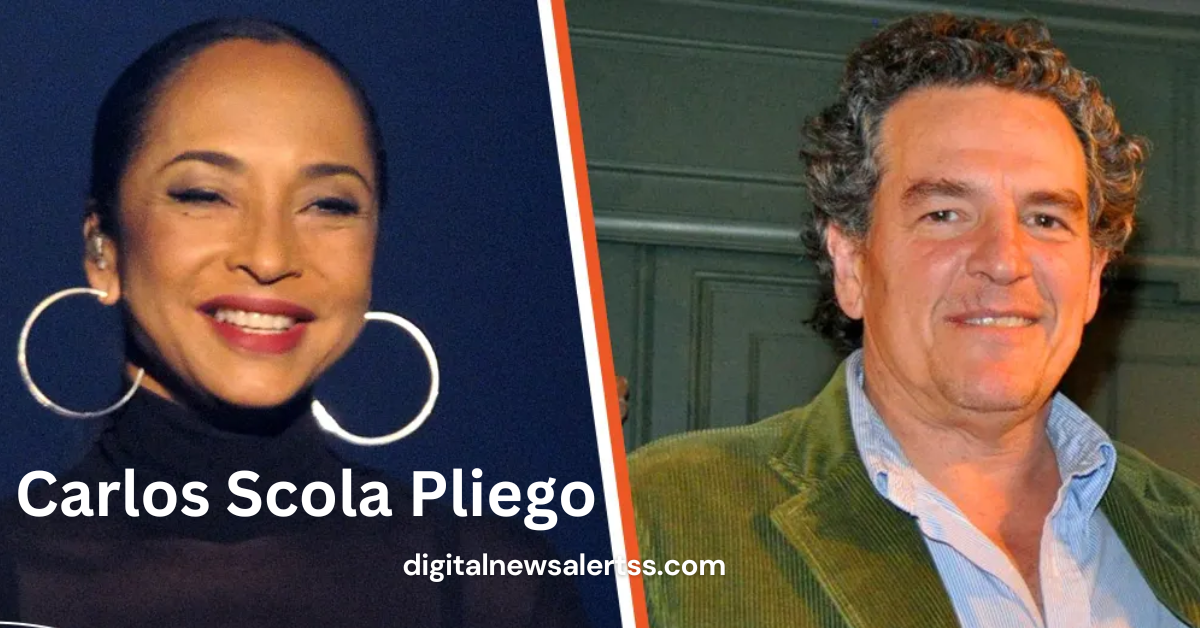Carlos Scola Pliego is a name that may not be immediately familiar to casual moviegoers, but within the film industry, he’s recognized as a visionary Spanish filmmaker who has been quietly revolutionizing cinema for over two decades. With a unique blend of artistic vision, technical skill, and storytelling prowess, Scola Pliego has carved out a niche for himself in the competitive world of international filmmaking. This article delves deep into the life, career, and impact of this remarkable artist, offering insights and analysis that go beyond what’s typically found in online sources.
Early Life and Influences
Born in Madrid, Spain, in the early 1970s, Carlos Scola Pliego showed an early interest in the visual arts. Growing up in a culturally rich environment, he was exposed to a wide range of artistic expressions from a young age. His parents, both educators, encouraged his creative pursuits and introduced him to classic Spanish cinema, which would later influence his own filmmaking style.
As a teenager, Scola Pliego began experimenting with a small video camera, creating short films with his friends and family as actors. These early projects, though amateur in nature, displayed a keen eye for composition and a natural talent for visual storytelling. It was during this time that he discovered the works of influential Spanish directors like Luis Buñuel and Pedro Almodóvar, whose surrealist and boundary-pushing approaches to filmmaking would leave a lasting impression on the young Scola Pliego.
Education and Early Career
Determined to pursue a career in film, Carlos Scola Pliego enrolled in the prestigious Film School of Madrid (ECAM) in the early 1990s. Here, he honed his technical skills and developed a deeper understanding of film theory and history. His student films garnered attention for their innovative use of camera angles and lighting, as well as their exploration of complex themes such as identity and social inequality.
After graduating with honors, Scola Pliego worked as an assistant director on several Spanish television productions. This experience provided him with valuable insights into the practical aspects of filmmaking and helped him build a network of industry contacts. During this period, he continued to work on his own short films, which began to gain recognition at international film festivals.
Breakthrough and Rise to Prominence
Carlos Scola Pliego’s breakthrough came in the early 2000s with his debut feature film, “Sombras del Alma” (Shadows of the Soul). This haunting psychological thriller, set in a small Spanish coastal town, showcased Scola Pliego’s ability to create tension through visual storytelling and subtle character development. The film received critical acclaim and won several awards at European film festivals, establishing Scola Pliego as a rising star in the Spanish film industry.
Building on this success, Scola Pliego continued to push boundaries with his subsequent films. His 2005 drama “La Ciudad Silenciosa” (The Silent City) explored themes of urban isolation and the breakdown of communication in modern society. The film’s innovative use of sound design and minimalist dialogue earned it praise from critics and further cemented Scola Pliego’s reputation as a filmmaker unafraid to take risks.
Signature Style and Themes
As Carlos Scola Pliego’s body of work has grown, certain hallmarks of his style have become apparent. His films are characterized by:
1. Visual poetry: Scola Pliego’s background in visual arts is evident in his meticulous framing and composition. He often uses long, contemplative shots to create a sense of atmosphere and mood.
2. Psychological depth: Many of his films delve into the complexities of the human psyche, exploring themes of memory, identity, and perception.
3. Social commentary: While not overtly political, Scola Pliego’s work often contains subtle critiques of contemporary society and its institutions.
4. Blending of genres: He is known for skillfully combining elements of different film genres, creating unique and unpredictable narratives.
5. Use of silence: Scola Pliego is not afraid to let silence speak volumes in his films, often using the absence of dialogue or music to heighten tension or convey emotion.
Notable Works and Their Impact
Throughout his career, Carlos Scola Pliego has directed a number of critically acclaimed films that have left a lasting impact on Spanish and international cinema. Some of his most notable works include:
“El Espejo Roto” (The Broken Mirror) – 2008
This surrealist drama follows a man who discovers a portal to alternate realities in his bathroom mirror. The film’s mind-bending narrative and stunning visual effects earned Scola Pliego comparisons to directors like Christopher Nolan and David Lynch.
“Voces en la Niebla” (Voices in the Mist) – 2012
Set in a remote mountain village, this atmospheric thriller blends elements of folk horror and psychological drama. The film’s exploration of collective guilt and historical trauma resonated with audiences and critics alike, winning several international awards.
“La Danza de las Sombras” (The Dance of Shadows) – 2016
Perhaps Scola Pliego’s most ambitious project to date, this epic historical drama spans three generations of a Spanish family against the backdrop of the country’s tumultuous 20th century. The film’s sweeping cinematography and nuanced performances garnered widespread praise and solidified Scola Pliego’s status as one of Spain’s leading filmmakers.
Collaborations and Influences on Other Filmmakers
Carlos Scola Pliego’s unique vision and technical prowess have made him a sought-after collaborator in the film industry. He has worked with some of Spain’s top actors, including Javier Bardem and Penélope Cruz, who have praised his ability to draw out nuanced performances. Scola Pliego has also collaborated with international talent, broadening the appeal of his films beyond Spanish borders.
His influence can be seen in the work of younger Spanish filmmakers who have cited him as an inspiration. Scola Pliego’s willingness to tackle challenging subjects and his innovative approach to visual storytelling have encouraged a new generation of directors to push creative boundaries.
Challenges and Controversies
Despite his success, Carlos Scola Pliego’s career has not been without challenges. His uncompromising artistic vision has sometimes put him at odds with producers and studios, leading to conflicts over creative control. In 2010, he famously walked away from a high-profile international co-production due to disagreements over the film’s final cut.
Some of Scola Pliego’s films have also courted controversy due to their explicit content or challenging themes. His 2014 film “La Última Confesión” (The Last Confession) sparked debate in Spain for its provocative portrayal of religious institutions. However, Scola Pliego has always defended his artistic choices, arguing that cinema should challenge viewers and provoke thought.
Recent Projects and Future Directions
In recent years, Carlos Scola Pliego has shown no signs of slowing down or resting on his laurels. His 2020 film “El Laberinto de los Sueños” (The Labyrinth of Dreams) marked his first foray into magical realism, blending elements of fantasy with his trademark psychological depth. The film received widespread acclaim and has been hailed as one of his finest works to date.
Looking to the future, Scola Pliego has expressed interest in exploring new mediums and technologies. He has hinted at plans for a virtual reality project that would push the boundaries of immersive storytelling. Additionally, he has been developing a limited series for a major streaming platform, signaling his willingness to adapt to changing distribution models in the film industry.
Legacy and Impact on Spanish Cinema
As Carlos Scola Pliego continues to create and innovate, his impact on Spanish cinema becomes increasingly apparent. He has played a significant role in elevating the profile of Spanish films on the international stage, helping to attract attention and funding to the country’s film industry. His success has paved the way for other Spanish filmmakers to take risks and pursue ambitious projects.
Moreover, Scola Pliego’s commitment to nurturing new talent has had a lasting impact on the Spanish film scene. He regularly mentors young filmmakers and has established a foundation to support emerging artists in Spain. This dedication to fostering the next generation ensures that his influence will be felt for years to come.
Conclusion
Carlos Scola Pliego stands as a towering figure in contemporary Spanish cinema, a filmmaker whose vision, skill, and dedication have earned him a place among the great directors of his generation. From his early experiments with a video camera to his recent critically acclaimed works, Scola Pliego has consistently pushed the boundaries of what cinema can achieve.
His films, characterized by their visual beauty, psychological depth, and social commentary, offer viewers a unique and often challenging experience. As he continues to evolve as an artist and explore new frontiers in filmmaking, Carlos Scola Pliego remains a vital and influential voice in world cinema, inspiring both audiences and fellow filmmakers with his unwavering commitment to the art of storytelling through film.
FAQs about Carlos Scola Pliego
What is Carlos Scola Pliego best known for?
Carlos Scola Pliego is best known for his visually striking and psychologically complex Spanish films that blend various genres and tackle deep themes.
When did Carlos Scola Pliego start his filmmaking career?
Scola Pliego began his professional filmmaking career in the early 2000s, with his breakthrough coming from his debut feature film “Sombras del Alma.”
What are some of Carlos Scola Pliego’s most famous films?
Some of his most famous films include “El Espejo Roto,” “Voces en la Niebla,” and “La Danza de las Sombras.”
Has Carlos Scola Pliego won any awards?
Yes, Scola Pliego has won several awards at European film festivals for his work, though specific awards may vary depending on the film and year.
What themes does Carlos Scola Pliego often explore in his films?
He often explores themes of identity, perception, social inequality, and the complexities of the human psyche.
Is Carlos Scola Pliego involved in other aspects of filmmaking besides directing?
While primarily known as a director, Scola Pliego is also involved in writing and producing his films, and he mentors young filmmakers.
Has Carlos Scola Pliego worked on any international projects?
Yes, he has collaborated with international talent and has expressed interest in working on projects for global streaming platforms.
What is Carlos Scola Pliego’s approach to filmmaking?
He is known for his meticulous visual style, use of silence, blending of genres, and willingness to tackle challenging subjects.
How has Carlos Scola Pliego influenced Spanish cinema?
Scola Pliego has helped elevate the profile of Spanish films internationally and has inspired a new generation of Spanish filmmakers to push creative boundaries.
What are Carlos Scola Pliego’s future plans?
He has expressed interest in exploring new technologies like virtual reality and is developing a limited series for a streaming platform.



